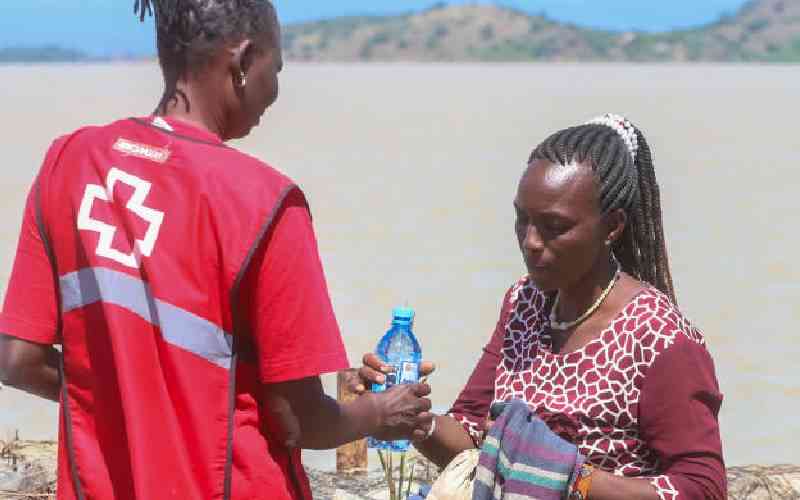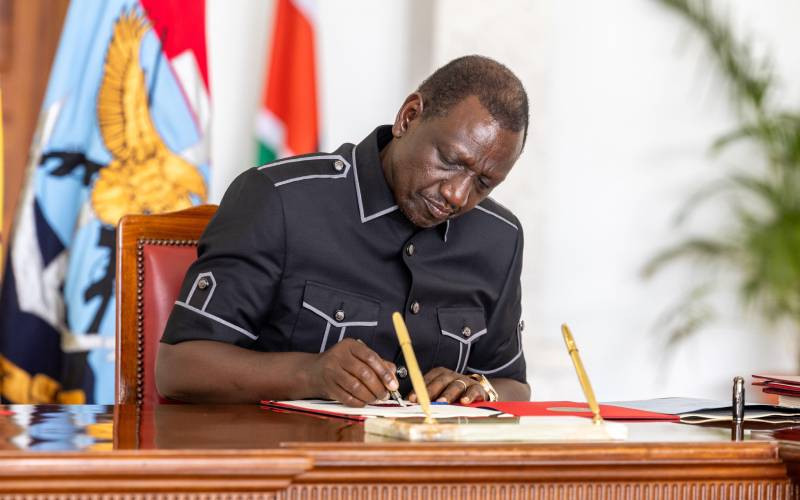By Renato Canova
[email protected]
In an article published in last week’s The Standard on Sunday, “What Researchers Have Discovered Among Local Runners”, there are some wrong assumptions regarding myself, which I want to rectify.
The first is about the phrase “He left Kenya after Athletics Kenya accused him of working without a work permit”.
This is untrue.
In 2013, AK President Isaiah Kiplagat appointed me to coach Kenyan athletes. But I left in April last year to be the head coach of China’s national team for middle and long distance races.
The second is when you write that I said “EPO (Erythropoitein) doesn’t work with Kenyan athletes”. I never said something like this. Instead, I explained why, in my opinion, EPO doesn’t work with the top athletes of long distances. That is a very different case.
If it’s true that there is no published research showing that the world-class Kenyan athletes don’t improve after doping, as the article said, it’s also true that there is no research showing they can improve after doping.
Why so?
For the very simple reason that I have coached top athletes such as Saaeed Shaheen, (born Stephen Cherono), Wilson Boit Kipketer, Dorcas Inzukuru, Imane Merga, Rita Jeptoo and others to better their world records. And they were clean.
So, I don’t have any proof that doping doesn’t work, but I have the proof that, without any supplements, both legal and illegal, it is possible for good athletes to be at the top of the world.
There are studies trying to quantify the advantages an athlete can have using EPO. Some of these so-called studies are ridiculous and unprofessional.
I believe in training and there is some scientific explanation about the big improvements of the performances over the years. With three or four months of proper aerobic training in high altitude, talented runners can increase the total volume of blood in their body by 25 per cent - which means about 1.5l more than before training.
With proper training, I mean the volume and intensity of the training regime, the best runners in the world observe, which basically amounts to running about 30km or more per day.
Such rigorous exercises can significantly increase the ability of the red blood cells to transport oxygen to the tissues because the athletes’ blood can circulate faster than before.
It is important to get some more data on the effect of EPO on Kenyan runners if we want to give scientific value to the research done so far.
Stay informed. Subscribe to our newsletter
We need to know the background of the runners selected for the test and which type of training they did before and after taking the EPO.
I am and will always be against any type of doping because I believe in the educative values of sport. I also believe that with strong motivation an athlete can go far with their natural talents.
But at the same time, I am against people who use anti-doping campaigns and research to misinform and exaggerate the effects blood doping have on athletes’ performances. The battle against doping must be educative, and when we give wrong information we increase the problem.
Researchers should understand that there is a big difference between professional, elite athletes and normal people because of the effects of training.
If the researchers were to explain that blood doping really doesn’t work at the top level, then the number of cases of using drugs will decrease immediately.
— The writer has coached several elite Kenyan runners. He is currently the head coach of China’s middle and long distance team.
 The Standard Group Plc is a
multi-media organization with investments in media platforms spanning newspaper
print operations, television, radio broadcasting, digital and online services. The
Standard Group is recognized as a leading multi-media house in Kenya with a key
influence in matters of national and international interest.
The Standard Group Plc is a
multi-media organization with investments in media platforms spanning newspaper
print operations, television, radio broadcasting, digital and online services. The
Standard Group is recognized as a leading multi-media house in Kenya with a key
influence in matters of national and international interest.
 The Standard Group Plc is a
multi-media organization with investments in media platforms spanning newspaper
print operations, television, radio broadcasting, digital and online services. The
Standard Group is recognized as a leading multi-media house in Kenya with a key
influence in matters of national and international interest.
The Standard Group Plc is a
multi-media organization with investments in media platforms spanning newspaper
print operations, television, radio broadcasting, digital and online services. The
Standard Group is recognized as a leading multi-media house in Kenya with a key
influence in matters of national and international interest.







